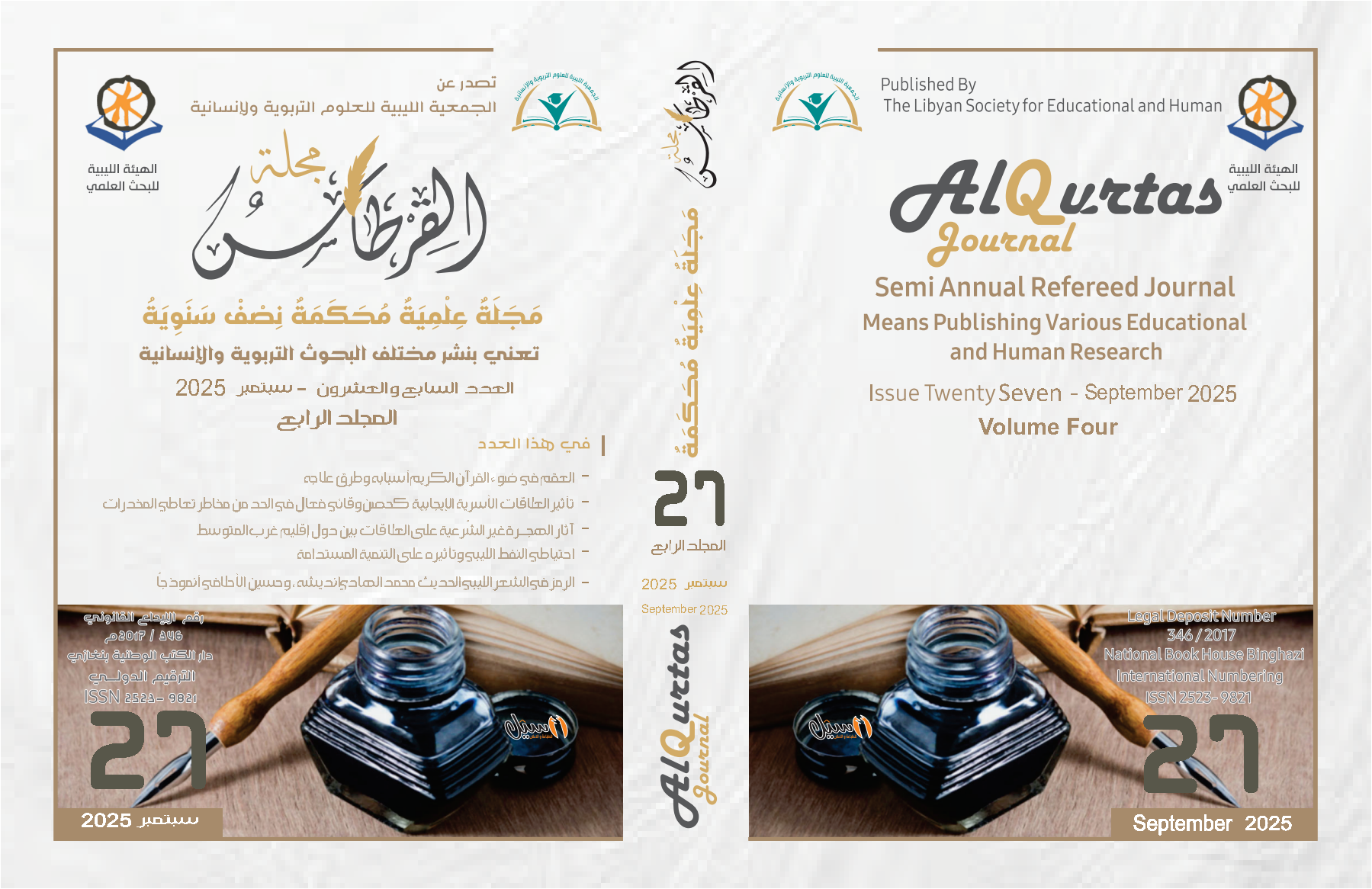The extent to which Libyan criminal law protects children from the crimes of abandonment and neglect
Main Article Content
Abstract
The behavior of neglecting a minor or a helpless person is one of the most heinous crimes against humanity. The life of someone who is unable to protect themselves, whether due to their young age or illness. There is no doubt that all laws, regulations, and conventions call for the protection of children from any behavior that puts their life and safety at risk. Libyan criminal law, like other legislations, has focused on protecting children from the crimes of abandonment or abandonment in places that may put their lives and safety at risk. Article 389 of the penal code criminalizes the conduct of neglecting a child to protect honor. The text defines the characteristics of the perpetrator and the victim, and restricts the characteristics of the perpetrator to the feeling that his honor, or the honor of a member of his family, is in danger .The victim's status is also restricted to being a chic immediately after birth, so that the specific intent of protecting honor is achieved. The legislature also criminalizes the act of causing minors or incite for any reason in Article 387 of the Pena I Code, restricting the perpetrator's status to those entrusted with the guardianship or care of a minor or a person incapable of managing their own affairs. Although this crime may be committed for revenge, financial gain, or any other reason, the Legislature prescribes a Lighter penalty than the penalty for causing a newborn to protect honor. The Legislature also does not address the penalty for the perpetrator of this crime if they are not entrusted with the guardianship or care of a minor or incapacitated person, whether as a perpetrator or an accomplice
The Libyan criminal Legislator's protection of children has extended to criminalizing. The behavior of not reporting the incident of finding a minor or disabled person, whether stray or Lost, under the text of Article 388 of the penal Code. However, we Find that this protection is Limited to children under ten years of age and not extend to others. This is considered an injustice to choice to children aged ten years and above, up to fourteen years of age. They also need this protection, which is required by criminal justice and called for by all international agreements concerned with children. Therefore, we call on the Libyan criminal Legislature to review the provisions of this crime and amend them to align with the requirements of modem criminal policy.
Downloads
Article Details

This work is licensed under a Creative Commons Attribution-NonCommercial 4.0 International License.

